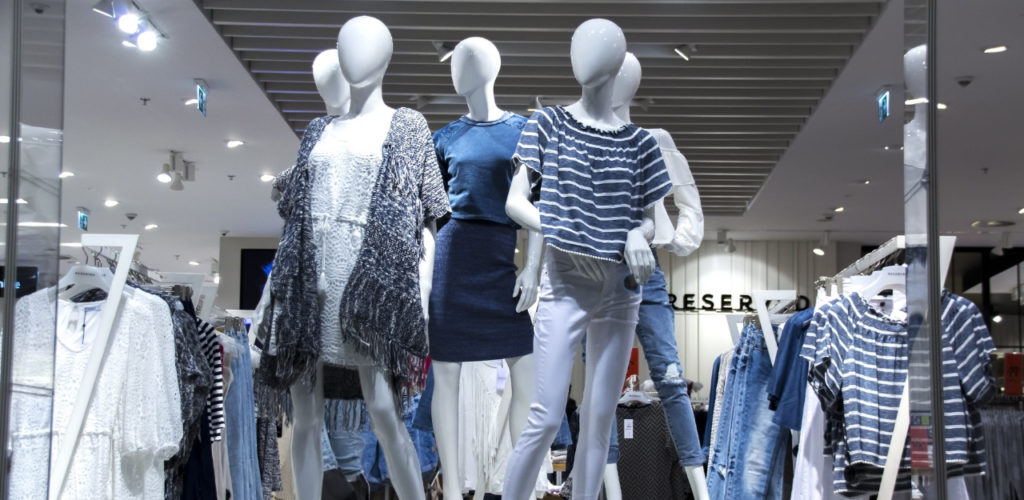In the ever-evolving landscape of eCommerce, two dates loom large on every retailer’s calendar: Black Friday and Cyber Monday. These monumental shopping events have become synonymous with unbeatable deals, record-breaking sales, and a shopping frenzy that knows no bounds.
But, here’s the catch: the Black Friday and Cyber Monday sales spectacle doesn’t begin on the day itself. It starts well before, in what we call the “pre-sales” period – a time when savvy shoppers are on the hunt for early bargains and retailers are fine-tuning their strategies for the shopping extravaganza.

The Pre-Sales Period: An Emerging Powerhouse
Recent market statistics tell a fascinating story about this pre-sales period. In the UK and the US, the prelude to Black Friday and Cyber Monday has morphed from a mere warm-up act into a retail powerhouse of its own.
Market stats:
According to Adobe Analytics, online sales in the United States on Cyber Monday reached an all-time high of $11.3 billion, surpassing the previous year’s Cyber Monday figures by 5.8% and exceeding this year’s Black Friday online sales by 25%. Consequently, Cyber Monday emerged as the leading online sales day of 2022.
Salesforce has released its data, derived from 1.5 billion shoppers, indicating that online sales in the U.S. amounted to $8 billion and globally reached $40 billion by 5 p.m. Eastern Time on Black Friday. Notably, the U.S. saw the highest discounts in categories such as home appliances, apparel, health and beauty products, and even luxury handbags.
These statistics underscore a fundamental shift in consumer behavior and retail strategies. Pre-sales periods are no longer a mere preamble; they are now a critical phase where the battle for market share intensifies, and customers are already opening their wallets.
The High-Stakes Game of eCommerce
As eCommerce heads and managers, it’s imperative to grasp the significance of this pre-sales period. It’s not just about having a Black Friday and Cyber Monday strategy; it’s about mastering the art of preparation and seizing opportunities before the grand finale.
This is where Artificial Intelligence (AI) comes into play. In the topics that follow, we’ll explore how AI tools and technologies can empower eCommerce businesses in the UK and the US to navigate the turbulent pre-sales waters with precision. From demand forecasting to personalized recommendations, AI holds the promise of not just survival but thriving in this high-stakes game of eCommerce.
Understanding the Consumer Behaviour Pre-Black Friday and Cyber Monday Landscape
Consumer Behavior: The pre-Black Friday and Cyber Monday period is no longer a mere run-up to the big days. It’s evolved into a shopping phenomenon of its own. Shoppers are no longer content to wait until the official sale days. They are actively looking for deals and discounts well in advance. This shift in consumer behavior is reflected in impressive statistics:
Google Trends data shows a significant uptick in searches related to deals, promotions, and early holiday shopping in the weeks leading up to Black Friday and Cyber Monday.
Social media platforms also buzz with users discussing early deals and product recommendations, creating an environment where pre-sales promotions thrive.
A report from retailmenot mentions that about the same percentage of shoppers said they planned to shop early deals (56%) as shop Black Friday and Cyber Monday this year.
Leveraging AI Tools for Pre-Sale Preparation (BFCM 2023) in Fashion eCommerce
Fashion eCommerce managers gearing up for managing BFMC 2023 understand that success hinges on a dynamic and data-driven approach. The strategic use of Artificial Intelligence (AI) tools can be the game-changer that transforms your preparations. In this section, we’ll explore how AI tools, such as Automated Product Tagging, SEO-Friendly Description Generation at Scale, and AI Styling, can redefine your approach to demand forecasting, personalized recommendations, and pricing strategies.
AI Tool(s) for Demand Forecasting & Inventory management
One of the central challenges fashion eCommerce managers face in the pre-sales period is predicting and satisfying customer demand. With AI-powered demand forecasting, you can take a data-driven approach to this challenge.
Automated Product Tagging: The journey to accurate demand forecasting begins with proper product categorization. AI-driven Automated Product Tagging streamlines this process, ensuring that each product is accurately labeled with relevant tags. This not only improves inventory management but also allows for more precise analysis of customer behavior based on tagged product categories. Many ecommerce managers now realise the importance of using ai based demand forecasting and inventory management and use it very effectively.
Data-Driven Insights: AI algorithms analyze historical sales data, website traffic, search patterns, social media trends, and even external factors like weather, to provide highly accurate demand forecasts. This helps you understand which products are likely to be hot sellers during Black Friday and Cyber Monday.
SEO Product Description Generation at Scale: AI Tools can automate the generation of SEO-friendly product descriptions. These descriptions not only enhance the visibility of your products but also provide additional data points for demand forecasting. By understanding which product attributes are most in demand, you can stock and promote accordingly.
Personalized Recommendations
AI Styling: AI Styling is a game-changer when it comes to personalizing recommendations. This tool can analyze your customers’ purchase history, style preferences, and trending fashion items to suggest complete outfits or fashion ensembles. It goes beyond single-product recommendations, providing customers with an entire look. This enhances the overall shopping experience, increases average order value, and maximizes cross-selling opportunities.
Seasonal Trends: AI can also identify seasonal and fashion-specific trends, allowing you to stock and promote products that are in line with what your customers are looking for, aligning perfectly with the trends of the moment.
Customer-Centric Approach: AI algorithms analyze individual customer behavior, preferences, and purchase history to offer personalized product recommendations. This level of personalization increases the chances of customers discovering items that resonate with their unique style.
Enhanced Cross-Selling and Upselling: AI can suggest complementary items or upgrades based on what customers are already considering, effectively increasing the average order value. This can lead to higher revenue per customer, a vital metric during this crucial sales period.
Reduced Cart Abandonment: Personalized recommendations also help combat cart abandonment. When customers see products that genuinely interest them, they are more likely to complete the purchase.
AI-Driven Pricing Strategies and Dynamic Pricing
Pricing is a sensitive and vital aspect of your fashion eCommerce strategy during Black Friday and Cyber Monday. AI-driven pricing strategies can make a substantial impact on your profitability.

Real-Time Adjustments: Dynamic pricing powered by AI allows you to make real-time adjustments based on market dynamics, competitor pricing, and customer demand. This means you can always offer the most competitive prices while protecting your margins.
Competitive Analysis: AI tools can monitor competitor pricing and help you adjust your prices to stay competitive without sacrificing profits. You can also set pricing rules and constraints to ensure you stay within your desired pricing boundaries.
Promotions Optimization: AI can identify the products that are best suited for discounts and promotions. It can also suggest the optimal discount levels to maximize sales while maintaining profitability.
Importance of These AI Tools
The importance of these AI tools lies in their ability to optimize each aspect of your eCommerce strategy:
Efficiency: Automated Product Tagging and SEO-Friendly Description Generation streamline your operations, saving time and reducing errors.
Personalization: AI Styling and personalized recommendations create a shopping experience tailored to each customer, increasing loyalty and sales.
Profitability: AI-driven pricing strategies ensure that you’re competitive in the market while maintaining profitability.
As you prepare for BFCM 2023, consider incorporating these AI tools into your strategy. They will not only facilitate the execution of your plans but also elevate the overall shopping experience for your customers, giving you a competitive edge in the fashion eCommerce world.
We at Okkular empower eCommerce managers to harness the full potential of AI-driven tools for pre-sale preparations. From demand forecasting and personalized recommendations to AI-driven pricing strategies, Okkular provides the essential platform to streamline operations, enhance the shopping experience, and maximize profitability, ensuring a successful Black Friday and Cyber Monday in 2023. Get your Free Trial Now!

